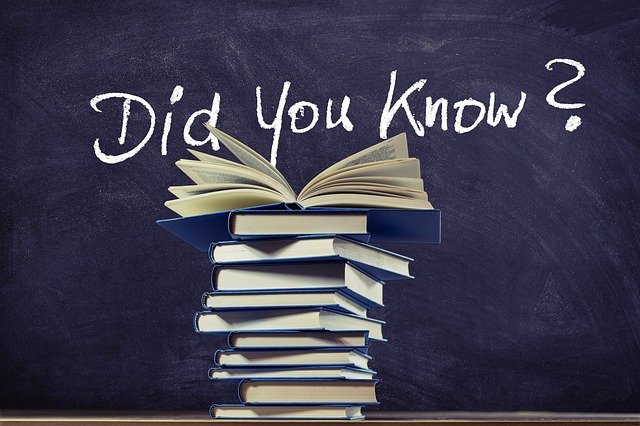The Beginners Guide to Homeschooling
So you think you want to homeschool? Congratulations! This post is giving you a beginners guide to homeschooling, what it is, misconceptions, why is it important, the advantages of homeschool, how to get started with homeschool, tips for homeschooling, and common homeschooling questions. Whether you currently are homeschooling family for life, or you are new to homeschooling just for this season of life and plan for your kids to return to public school when this passes, this article was written with you in mind! I hope this is helpful in your journey.
I have a lot of experience with homeschooling, because I was homeschooled most of my life! My mom started homeschooling me in the third grade, and continued until I graduated high school. I am familiar with the struggles, and emotions from a student perspective, so that definitely helped me with our transition from public school to homeschool. I still remember my favorite lessons, and the favorite activities we did, and I want those special memories for my kids too! When a child remembers part of their lesson, and it sparks interest and a fire that leads to other learning and curiosity, then that is what we are after! In all honesty, if I was a child today, I would probably be diagnosed with more than just ADHD, maybe some type of processing disorder, or learning difference.
What is Homeschooling?
Homeschooling is simply when a child is taught and they learn at home, usually by a parent. It’s not glamorous, or even pretty at times. It’s not always calm and beautiful, especially if you have a special needs child to teach, or a very active toddler that is underfoot. Ask me how I know this!
Homeschooling Misconceptions
There are so many misconceptions surrounding homeschooling!
- Homeschooling families always have big families. While this may seem true, we are a homeschooling family, and we only have 2 children. I know so many families that homeschool with only 1 or 2 children.
- Homeschooling girls can only wear long jean skirts and not show their ankles. This is laughable! Really. Now, I will say that I saw a lot more of this when I was younger in the 90’s and now I hardly ever see it. #thankthelord
- Homeschoolers never get to socialize with their peers. This is one of the biggest myths of them all! The homeschooling families I know are some of the busiest and have the most social kids of all! There are so many activities for homeschooled kids and teens, and usually there are options for a homeschool class or a class with homeschoolers and non homeschoolers combined. So trust me, they are very social, and they get to socialize with non homeschooling kids as well. Of course, covid did put a damper on some social activities and extra curricular activities and events, but the homeschool community I am apart of, was ready to get back into living normally during the summer and fall last year. So it feels completely normal when we are at co op, thank goodness!

Why is Homeschooling Important?
Homeschooling has never been more “essential” than in todays times! We all know how the last 2 years rocked our world. Schools shut down, and parents, many of whom had to work from home, also had the added responsibility of assisting their children in learning virtually. This also gave them the opportunity to get a glimpse into what their children are being taught, and how they are being taught. For many, the rigid schedule of logging into the different platforms for schoolwork and live videos, plus homework, was too much.
They began to wonder if maybe this could be different. School could be different. Not so stressful, but joyful. So many parents turned to homeschooling and never looked back!
Homeschooling is important because many parents just want their children to learn at home, and they want to choose what and how they learn, whereas in regular school, they cannot chose what their child will learn and how. Parents want more choices for their child’s education, and homeschooling is a great choice! However, most parents don’t even know where to begin, and that is why I made The Beginners Guide to Homeschooling!
The Advantages of Homeschooling
Oh my, there are so many advantages to homeschooling! I won’t go too deep because I would be here all day 🙂 so I will just give you the most important ones off the top of my head!
- Getting to choose what your child learns and how
- You can teach bible, and memory verses, and do daily devotionals with your kids
- Depending on what your husbands job is, you can travel more, and go on more frequent trips without worrying about them missing “too many days of school”
- Going on more field trips or more real life experiences
- Getting to do school ANYWHERE
- Your children can learn more about their interests and passions, and can get stronger in their gifts
- Becoming an expert in their interests
- They can graduate early, and can go to college early through dual enrollment
- Graduate college or university early
- They can start internships at an early age, or start being taught a trade or a skill that will help them gain experience for a future job

Homeschooling Guide For Beginners
Now that we have all that out of the way, what do you need to get started? You can have all the beautiful, and fun curriculum books set up and projects and science experiments purchased, but…if you don’t have the right mindset and environment, (and this homeschooling guide!) it might all be for nothing! The beginners guide to homeschooling, always starts with our mindset. We are starting on the inside, and working our way out.
Mindset- What do I mean by mindset? I mean, we need to shift our perspective around what “school” at home should actually look and feel like. Our homeschool doesn’t have to look like in person school, and in fact, I would go so far as to say that it shouldn’t look like regular school! Now, if you think your child would do better with tons of structure, and textbook learning and worksheets, then by all means, let them do how you think they will thrive and learn best. But I would venture a guess, that isn’t how most children learn best. In fact, this may be the reason most parents decide to switch to homeschooling in the first place! They wanted a different learning environment for their child. So once you have your mindset in the right place, and know that homeschooling should be different than regular school, then you can move on to the environment!
Environment- What do you want your homeschool to look, and feel like? Warm, cozy, cheery, peaceful, vibrant, inspiring, high energy, calming, etc. Those are just some vibe words to start with! Keep your children’s personalities and learning styles in mind as you prepare your environment. If you aren’t sure, then it’s totally ok to let your child lead the vibe, and see where it goes from here.
Prepare- Now to prepare! You have already prepared your mind, and your environment, now all you have to do is get your curriculum and your kids prepared! I know, this may seem like the hard part because there are a gazillion curriculums and posts out there, and this recommendation and that one! It’s enough information overload to want to crawl into a fetal position in the corner and hide from the world! If you have the money, and you just want to get started fast without researching yourself, then I suggest hiring a Homeschool Coach to help you with the nitty gritty details! If you don’t have the money, and you have some time, then I suggest asking yourself and your kids these questions first.
- What would you like to learn about? This is a great question to ask for every subject, except maybe math!
- Is there anything you would rather try doing online? Through an online curriculum, or videos, or youtube?
- Would you like to learn through unit studies, or just do that sometimes?
- Do you like learning through a textbook?
Now for one more step in the Homeschooling Guide for Beginners.! Have you ever heard of deschooling? It’s almost like a regular school detox! Except hopefully no explosive bathroom episodes! Ok, but to be serious, it is a time for the children to not think about school at all. It is a time for them to recharge mentally, physically, creatively, spiritually, etc. It is a time to destress the body and the brain, so they are set up for success in homeschooling! They need to be able to “deschool” in preparation for homeschooling, because as I said above, homeschooling is NOT regular school, and shouldn’t look, or feel the same way. You more than likely will not be preparing the same way as if they were going to school, and you shouldn’t be, because it’s worlds different!
Tips for Success in Homeschooling
How can you be successful in homeschooling? Here are my quick tips and recommendations. I might do a whole post and go more in depth on each of these tips and more in a future post.
- Be flexible! I cannot stress this enough. There is nothing worse than overreacting and stressing ourselves out because our beautifully planned out homeschool day didn’t go as planned. It’s not worth the stress. Trust me, I’ve been there mama! Learn to be flexible.
- Let go of perfectionism. This kinda goes with being flexible, but it’s equally as important! Let go of the grades mentality, and let go of the idea that they have to do school like in person schools, because you don’t need to!
- Give yourself and your kids grace. There will be days where you don’t want to teach, or read. There will be weeks where you didn’t get to plan the week and make a schedule. There will also be days where your kids just don’t want to do school. And…that’s all ok! I’m not saying don’t always skip school every time you feel like that but you can adjust the schedule, take something our for that day, or to totally take a rest and reset day and read books and play games. Give yourself and your kids grace to adjust the day to suit the needs of the family.
- Stop comparing your kids or your homeschool with other homeschool families. This one. Is a BIG one! We are constantly comparing our kids and the way we homeschool, and the curricuclum we use to other homeschool families, and I will let you in on a little secret- they are probably doing the same thing! We hear so many things from youtube, blogs, other moms, the co-op we are in, and that is all great information! However, it can be too much information, and can easily leave a homeschool mama feeling like they aren’t doing enough. If you find yourself doing this, you can unfollow them on social media, limit your time on social media or youtube or reading blogs, and you even hide their posts if its distracting you or making you feel bad. You can still be friends with them in real life if you want, but if you feel like its making you compare and feel bad about you and your homeschool, then unfriend or unfollow for the time being! Aint nobody got time for that!
- Let go of the “school” mentality. Classrooms are so crowded and have so many kids, its hard to individualize anything for children. Even children that don’t have special needs still need individualized teaching, and they all have different learning styles. However, with only one or two teachers in the classroom, that isn’t always possible, even for children with special needs who have an IEP! However, with homeschooling, you can individualize instruction for each child! You can teach them the way they learn best, and present instruction in alignment with their learning style! Classrooms focus on grades, facts, memorization, and teaching children things most won’t use when they get older. There is also this perspective of if they aren’t on the same academic level as their peers, they won’t succeed or get a good job, etc. None of that is true by the way. There is no “getting behind” in homeschool! You can linger on certain topics, and go slower in math. There are no rules like in regular school!
- Get to know your kids and have fun with them. Why do most people want to homeschool? To be home with their kids! I know, I know. Once you start homeschooling and your together like 24-7 every day, you start to think,” What did I get myself in to? I need a break!” Yes, you will need frequent breaks as often as possible. And when we can’t get a break from our kids because our husband is working, and they are driving us crazy, and we still have homeschool to do? Then you can ALL take a break! Go to a park, playground, or an indoor playground, and just let them play! Go for a drive, and go through a drive through for lunch or a snack (I won’t tell, because I’ve done this!), and get yourself a coffee or your favorite indulgent beverage! You will hopefully come home refreshed, and renewed. And that school you didn’t get to? It can probably wait until tomorrow!
- Have them learn about their passions, and give them ample time for their passions and their strengths. Take them to the library and have them pick out books related to whatever they are interested or passionate about. Let them take a deep dive into that topic for as long as they want. You can introduce other things in that you want them to learn, but do that in a scaled back way, such as through a casual book or read aloud during morning basket time. You will be amazed how much they will learn. Also, whatever their strength is, pour into that and help them get even better! Help them become an expert or master in their chosen talents, strengths, interests, and passions! I go more in depth into The 5 Homeschool Methods in this article, and how to choose the method that works best for you!
- Get out in nature as much as possible! When it’s good weather, you can do all your schooling outside! Why not? And when it’s super beautiful weather, it’s also ok and I encourage you to pack a picnic and some nature journals, and take a walk or a hike with your kids! Schooling is complete for the day! 😉

Common Homeschooling Questions
The last thing you need to know about Homeschooling
If you have made it this far, bravo, and thank you! That means you are actually serious about homeschooling, and you are ready to learn all you can about it and dive right in! There are so many things I could end with that I haven’t already said, because there is so much else to say on this topic! But so as not to overwhelm you even more than you already very well may be regarding homeschooling, I will leave you with two last thoughts to consider:
- Children and teens (whether homeschooled or public schooled) will not know EVERYTHING they need for the next grade or in life, etc., and that’s ok! It would be just about impossible to teach all kids everything they will ever need for their future, and this includes public schools as well.
- Also, it is worth it. I promise you! Even when you’re not sure. It’s worth it. Even if you have a special needs child, and teaching them sometimes makes you want to pull your hair out, it’s worth it! In the end, it’s all worth it. At least, that is what I have to keep telling myself anyway. You may go between days that you love homeschooling because you are NOT a morning person (guilty) and love having your kids home, and the next day wanting to quit and wondering why you thought this was a good idea! Just know this is all completely normal, even if you feel crazy! It’s normal to feel crazy sometimes. If you like what you have read so far, and have decided for sure that you want to homeschool, then also check out my other post about “The 5 Homeschooling Methods, and how to choose the best one for you!
Thank you so much for reading! If you know someone that has been curious about homeschooling, please share this Homeschooling Guide for Beginners with them! I will be writing more and more about homeschooling, so stay tuned for more!
xoxo
Tara, The ADHD Mermaid






